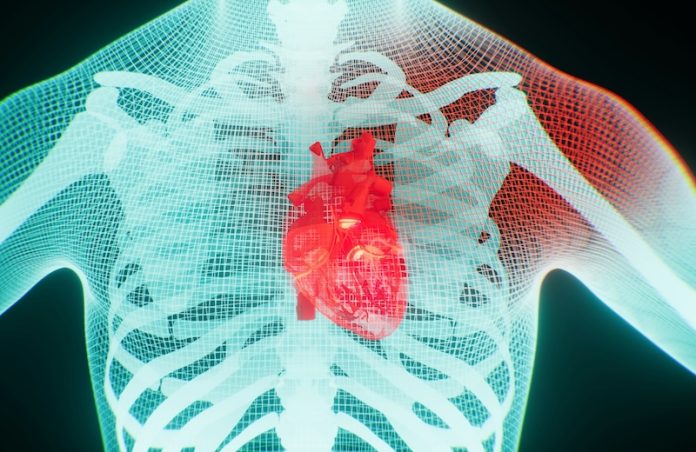
Arterial blockages in the heart, also known as coronary artery disease (CAD), happen when the main blood vessels supplying the heart become damaged or diseased.
This often results from the buildup of cholesterol deposits (plaque) and inflammation in the arteries.
Recognizing the early signs of these blockages is crucial as they can lead to serious cardiovascular events like heart attacks.
Coronary artery disease develops gradually over many years. Initially, it may not cause any symptoms.
However, as plaque builds up and narrows the arteries, it restricts blood flow. If the arteries become too narrow or blocked, a heart attack can occur. The buildup and hardening of plaque in the arteries is known as atherosclerosis.
Here are some key signs of arterial blockage:
Chest Pain (Angina) One of the most common signs of significant arterial blockage is chest pain or discomfort, known as angina. This can feel like pressure, squeezing, fullness, or pain in the center of the chest.
The sensation may also spread to the shoulders, arms, neck, jaw, or back. Angina is usually triggered by physical or emotional stress and typically lasts a few minutes before subsiding. Any new, unexplained chest pain or a sudden worsening of existing chest pain should be evaluated by a healthcare professional immediately.
Shortness of Breath If the heart cannot pump enough blood due to a blockage, it can lead to shortness of breath.
This may occur during physical activity or when lying flat, and it may be accompanied by fatigue. People with CAD might notice these symptoms especially during exercise or other exertions when the demand for oxygen is higher.
Heart Palpitations Irregular heartbeats, or palpitations, can also be a sign of coronary artery disease. Patients might feel fluttering, a fast-beating heart, or pounding in the chest. This happens because the heart is working harder than usual to pump blood through clogged arteries.
Nausea, Indigestion, Heartburn, or Stomach Pain These symptoms can occur during a heart attack and are more common in women than men. They can often be mistaken for other conditions like a stomach ulcer, the flu, or gastroesophageal reflux disease (GERD).
Fatigue Unusual fatigue can be a sign of significant arterial blockage. It can manifest as sudden, overwhelming tiredness that lasts for several days or fatigue during activities that previously did not cause tiredness. This symptom is also more common in women and may occur weeks before a heart attack.
Sweating Breaking out in a cold sweat for no apparent reason might signal a heart attack. This often occurs alongside other symptoms like chest pain or shortness of breath.
Recognizing these signs and seeking timely medical advice is crucial. Diagnostic methods such as stress tests, echocardiograms, and coronary angiography are used to evaluate the severity of blockages and guide treatment.
Treatment options may include lifestyle changes, medications, and potentially procedures like angioplasty or surgery, depending on the severity of the blockage.
Maintaining a healthy lifestyle is essential for preventing and managing coronary artery disease. This includes eating a balanced diet, exercising regularly, and quitting smoking. Regular check-ups with a healthcare provider are also important for anyone at risk of CAD.
In summary, being aware of the signs of arterial blockage and responding quickly to heart-related symptoms can save lives.
Taking preventive measures and seeking regular medical advice are key steps in managing and reducing the risks associated with coronary artery disease.
If you care about heart health, please read studies that yogurt may help lower the death risks in heart disease, and coconut sugar could help reduce artery stiffness.
For more information about health, please see recent studies that Vitamin D deficiency can increase heart disease risk, and results showing vitamin B6 linked to lower death risk in heart disease.
Copyright © 2024 Knowridge Science Report. All rights reserved.



